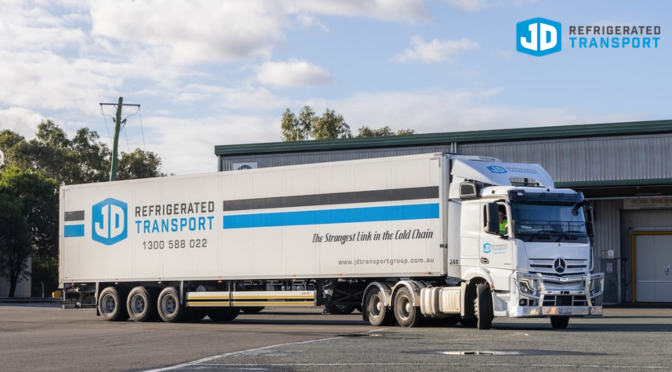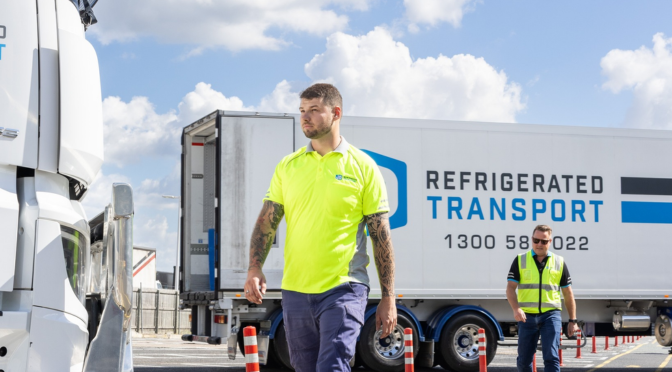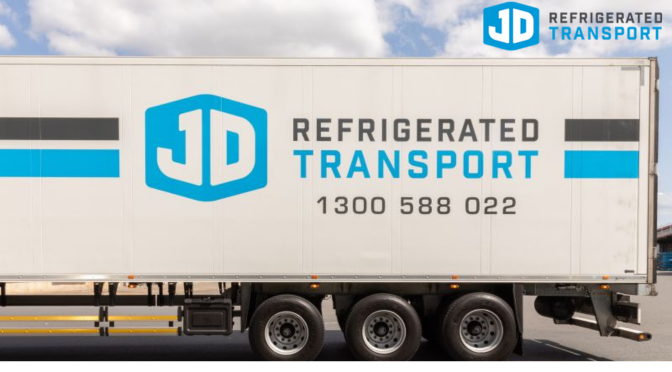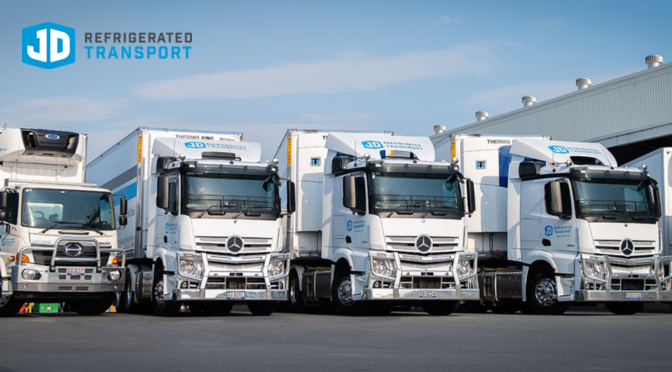Temperature-controlled logistics is entering a new era driven by fast-moving technological advancements. Industries that rely on strict temperature standards are seeking smarter and more precise solutions. As global supply chains grow more complex and customer expectations rise, companies are shifting from traditional cold transport methods to highly innovative and data-driven systems.
Today, technology is not just enhancing temperature control. It is reshaping the entire landscape of temperature-controlled logistics in Brisbane. It’s redefining what efficiency, visibility and product safety truly mean.

Real-Time Monitoring for Precise Temperature Tracking
One of the biggest breakthroughs in temperature-controlled logistics is real-time monitoring. Sensors placed inside refrigeration trucks and containers capture live data related to temperature, humidity, and air quality. This information is transmitted to central dashboards where supervisors can track conditions at every moment. If the temperature starts to fluctuate, alerts are immediately triggered.
The team can then respond quickly and prevent product spoilage. Real-time monitoring ensures that sensitive items remain within safe limits throughout the entire journey.
Smart IoT Devices for Better Connectivity
IoT technology has become the backbone of modern refrigerated transport. Smart devices connect drivers, dispatch teams, warehouse staff and fleet managers through one integrated system.
These devices can also measure vibration, door openings, refrigeration performances, and even route conditions. As a result, temperature-controlled logistics in Queensland can predict issues before they occur and correct them instantly. IoT connectivity supports better decision-making and increases the overall reliability of each shipment.
AI-Driven Predictions for Fewer Losses
Artificial intelligence is playing a pivotal role in preventing losses. AI-powered algorithms analyse historical data and identify patterns, such as recurring temperature dips, equipment failures, or delays on certain routes. By predicting potential risks, artificial intelligence helps temperature-controlled logistics in Brisbane take preventive measures.
This leads to fewer stock losses, less downtime and better resource planning. AI can also optimise loading plans and distribution schedules, which further enhances performance.
Advanced Refrigeration Systems for Sustainability
Environmental sustainability is now a major focus across the logistics sector. New-age refrigeration systems use intelligent cooling cycles, energy-efficient compressors and environmentally friendly refrigerants. These systems maintain stable temperatures while reducing energy consumption.
Some operators are also adopting solar-powered refrigeration solutions that minimise carbon output. The combination of smart cooling systems and sustainable energy sources is making cold transport more eco-friendly.
Electronic Logging and Compliance Tools
Strict regulations govern the handling and transport of temperature-sensitive items. Technology has introduced electronic logging devices that automatically record temperature readings, driver hours, fuel usage and maintenance activity.
These digital compliance tools ensure that operators meet industry standards. They also simplify inspections and audits since all required data is stored securely and can be retrieved easily.
Cloud-Based Platforms for Better Supply Chain Coordination
Cloud platforms enable end-to-end visibility across the entire temperature-controlled logistics in Queensland. Transport companies, suppliers, drivers and customers can access relevant shipment information anywhere and at any time.
Cloud systems support digital documentation, route planning, inventory checks and compliance reports. This level of connectivity reduces communication gaps and improves coordination between all stakeholders.
Enhanced Customer Experience Through Data Insights
Customers today expect complete transparency and fast delivery. Technology helps businesses maintain strong customer relationships by offering accurate data insights and timely updates. Customers have the ability to monitor their shipments, examine condition histories, and verify the correct handling of their goods. This builds trust and improves overall customer satisfaction.
Hire Modern Temperature-Controlled Transport From Us
JD Refrigerated Transport specialises in temperature-controlled logistics in Brisbane and Queensland. We ensure that your sensitive goods remain protected from dispatch to delivery. With a committed team and a technology-driven approach, we provide dependable cold chain solutions that you can rely on. Call 1300 588 022 today to discuss your needs or to obtain a quotation.
FAQs
What makes IoT important for temperature-controlled logistics?
IoT devices support smooth communication between all stakeholders and provide continuous performance insights that enhance operational control.
How does AI improve efficiency in refrigerated logistics?
AI predicts risks, optimises routes, and analyses patterns that help reduce delays, equipment failures, and unnecessary expenses.
Are automated systems safe for handling temperature-sensitive products?
Yes. Automated systems offer higher accuracy and consistency, which reduces human error and enhances safety throughout the cold chain.
How do cloud platforms improve coordination in cold logistics?
They provide real-time access to shipment information, which helps teams collaborate more efficiently across all stages of transport.













